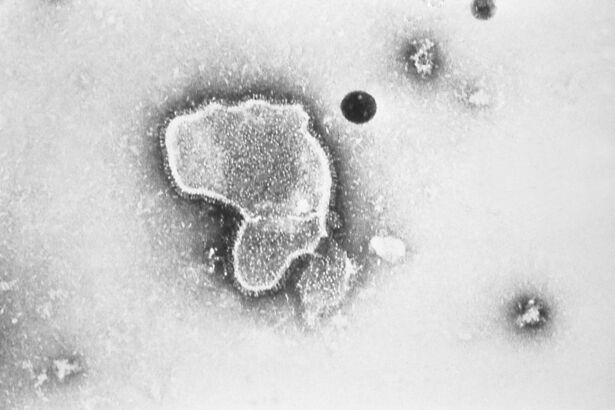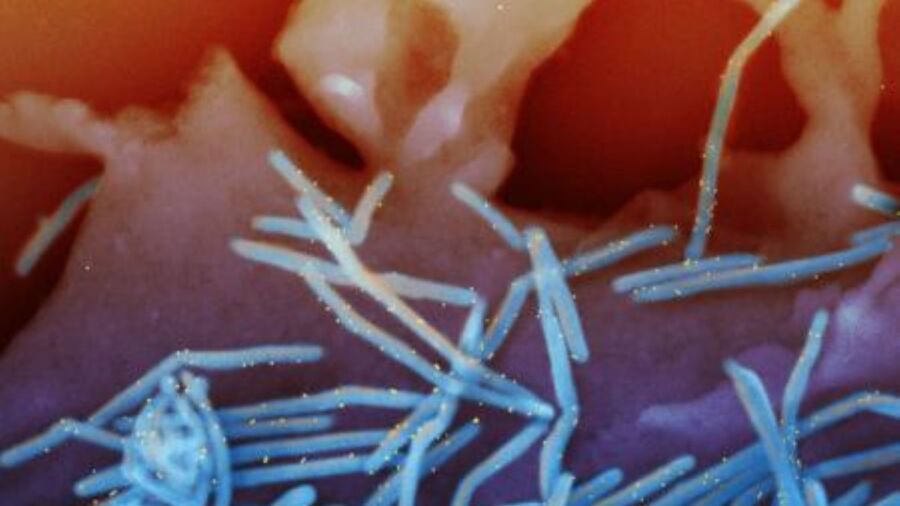The Centers for Disease Control and Prevention (CDC) is warning physicians and caregivers about an increase in respiratory syncytial virus (RSV) cases across some parts of the Southeastern United States in recent weeks.
In a Sept. 5 health advisory, the health agency said the rise in cases suggests a “continued shift toward seasonal RSV trends observed prior to the COVID-19 pandemic.”
“Historically, such regional increases have predicted the beginning of RSV season nationally, with increased RSV activity spreading north and west over the following 2–3 months,” the CDC said.
CDC data shows increases in weekly RSV levels since July but the agency said that nationwide, RSV test positivity had remained below the season onset threshold of 3 percent for two consecutive weeks.
However, more recent data show test positivity has increased in Florida since late July, and the three-week moving average has been greater than 5 percent for the last month.
RSV hospitalizations also increased in Georgia in August, the CDC said.
From Aug. 5 through Aug. 19, the rate of RSV-related hospitalizations increased from 2 in 100,000 kids aged 4 and younger, to 7 per 100,000, with the majority of those hospitalizations being in babies less than a year old, the CDC said.
In response to the rise in cases, the health agency urged clinicians to “prepare to implement new RSV prevention options” ahead of the 2023–2024 RSV season, including administering shots of monoclonal antibody products to patients as well as a preventative antibody treatment called nirsevimab.

FDA Approves RSV Treatments
“For all infants ages <8 months, and infants and children ages 8–19 months who are at increased risk of severe RSV, clinicians should start to offer Nirsevimab when it becomes available (expected by early October),” the CDC said.
A panel of outside advisers to the Food and Drug Administration (FDA) voted unanimously in July to approve nirsevimab for RSV in newborns and infants up to 24 months of age.
Sold under the brand name Beyfortus, the treatment is made by AstraZeneca and marketed by Sanofi. The companies said the drug showed efficacy in several clinical trials.
Regulators in countries including Canada and the United Kingdom have already approved Beyfortus.
A month later in August, regulators with the FDA also approved the first vaccine to be taken by pregnant women to prevent RSV infections in babies and toddlers.
Made by Pfizer, the Abrysvo single-dose injection was approved for use at 32 through 36 weeks of pregnancy. According to the pharmaceuticals giant, pregnant women who receive immunity from the shot will pass that immunity along to their unborn baby before birth, thus protecting them from lower respiratory tract disease (LRTD) and severe LRTD caused by RSV until at least the age of 6 months.
In trials, a dangerous hypertensive disorder known as pre-eclampsia occurred in 1.8 percent of pregnant individuals who received Abrysvo compared to 1.4 percent of pregnant individuals who received a placebo, according to the FDA.
RSV Symptoms
However, studies also showed the drug reduced the risk of severe LRTD by 81.8 percent within 90 days after birth, and by 69.4 percent within 180 days after birth.
RSV is a common respiratory virus that typically causes mild illness and symptoms such as a runny nose, decreased appetite, coughing, wheezing, and fever in most healthy adults. It is transmitted primarily through respiratory droplets when a person coughs or sneezes, or through direct contact with a contaminated surface.
Generally, individuals recover within a couple of weeks, according to the CDC.
However, in serious cases it can develop into a severe infection such as bronchiolitis (inflammation of the small airways in the lung) and pneumonia, requiring hospitalization.
Severe cases of RSV can occur in older adults and infants younger than 6 months of age or those with weakened immune systems.
The CDC estimates that 60,000 to 160,000 adults aged 65 years and older are hospitalized for RSV infections each year, with the virus leading to the deaths of 6,000 to 10,000 annually among that age group.
Meanwhile, RSV results in 2.1 million outpatient visits among children younger than 5 years old in the United States and 100–300 deaths in children younger than 5 years old, according to the health agency.
Typically, the annual RSV season starts in the fall and peaks in winter in the United States, however health officials say this historical pattern was disrupted during the COVID-19 pandemic. They claim this was likely owing to public health measures rolled out aimed at limiting the spread of COVID-19, which simultaneously reduced the spread of RSV.
From The Epoch Times


